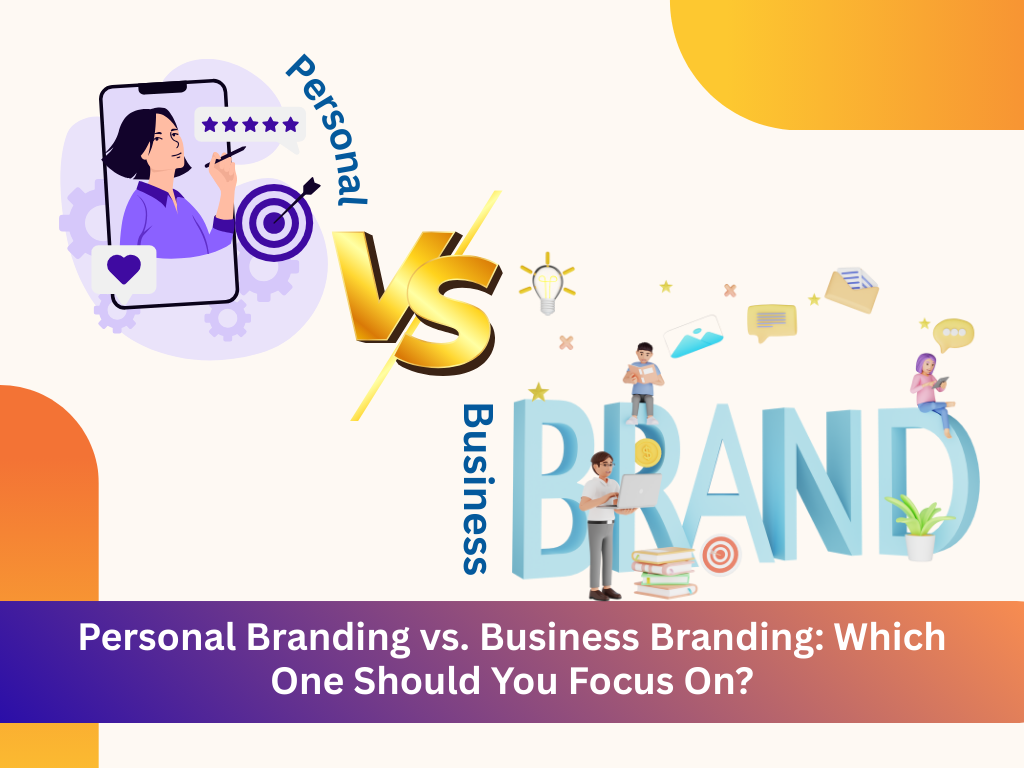
When it comes to building a presence in today’s competitive digital space, branding is non-negotiable. But the real question is: Should you focus on personal branding or business branding?
Both serve different purposes, speak to different audiences, and come with unique benefits. Let’s break it down so you can decide which path makes the most sense for you—or whether you need both.
What is Personal Branding?
Personal branding is the strategic process of positioning yourself as a thought leader, expert, or influencer in your niche. It’s built around your name, voice, personality, and values.
Examples: Gary Vaynerchuk, Marie Forleo, Neil Patel
Key Characteristics:
- Built around YOU as an individual
- Ideal for coaches, consultants, creators
- Relies heavily on social media presence
- Creates trust and relatability
What is Business Branding?
Business branding is about building a unique identity for your company or product. It includes your brand name, logo, tone of voice, messaging, and positioning.
Examples: Apple, Nike, HubSpot
Key Characteristics:
- Built for scalability
- Great for startups, agencies, product-based businesses
- Less personality-driven
- Easier to sell or exit
Pros & Cons: Personal vs. Business Branding
| Feature | Personal Branding | Business Branding |
| Trust Factor | High (people connect with people) | Takes time to build |
| Scalability | Limited (centered on individual) | High (team, systems, automation) |
| Exit Strategy | Hard to sell | Can be sold or acquired |
| Flexibility | Easier to pivot or rebrand | Rebranding is costlier and complex |
| Audience Connection | Personal and emotional | Professional and structured |
When Should You Focus on Personal Branding?
- You are a solopreneur, freelancer, coach, or creator
- You want to build trust quickly
- Your name is your business (e.g., speaking gigs, authorship)
- You want to be recognized as a thought leader
When Should You Focus on Business Branding?
- You’re building a company that may scale or be sold
- You want the brand to exist beyond you
- You want to establish a formal identity
- You offer products or services delivered by a team
Can You Do Both?
Absolutely.
Many successful entrepreneurs use personal branding to grow visibility and trust—then transition or link it to a business brand.
Example: Neil Patel → Neil Patel Digital (Agency)
Start by building an audience around your personal brand. Once you gain traction, you can either:
- Launch a business under a new brand
- Use your personal brand to drive traffic and leads to your business brand
Whether you’re just starting out or looking to scale, your branding strategy should align with your long-term vision.
- If you are the brand, start with personal branding.
- If you’re building a team or a company, invest in business branding.
- And if you’re ready to play both games—start personal, go business.
Need help figuring it out?
At Brandifyy, we specialize in building both personal and business brands that resonate and convert. Let’s create your unique brand blueprint together.
